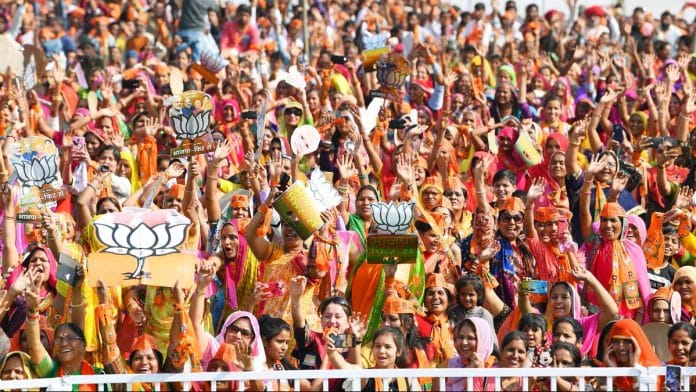New Delhi: The State Bank of India (SBI) has released electoral bonds worth Rs 1,716 crore in just 30 days this year under the government’s controversial Electoral Bond Scheme, a reply to an RTI query has revealed. The figure already exceeds the value of bonds released for all of 2018.
This comes at a time when the Supreme Court is hearing a petition, seeking a stay on the scheme.
According to the reply of the RTI query filed by activist Vihar Durve, the Rs 1,716-crore worth bonds is Rs 660 crore more than the value of the bonds released in all of 2018.
In 2018, electoral bonds worth Rs 1,056 crore were released in six tranches. These bonds were purchased by various entities and citizens.
This year’s electoral bonds were released by SBI between 1-15 January and 1-15 March.
“This is a very serious matter…It means that the opaque funding under the electoral bonds is only increasing,” said activist Commodore (retired) Lokesh Batra. “The Supreme Court must take notice immediately.”
Electoral bonds are like Promissory Notes that are available for purchase from the SBI within a designated window in every quarter of the financial year. SBI is the only authorised bank to issue such bonds.
Also read: Electoral bonds to be sold during Lok Sabha polls, says govt after press release muddle
Petition challenging electoral bonds
The Supreme Court is currently hearing a petition filed by the Association of Democratic Reforms (ADR), seeking a stay on the electoral bond scheme, which was notified by the central government in January last year.
While the government has maintained that the scheme would ensure transparency in political funding, the Election Commission (EC) had last week told the Supreme Court the scheme would have a “serious impact” on funding.
The EC also told the apex court the scheme would inject black money into the system through shell companies and give a free pass to “unchecked foreign funding of political parties in India which could lead to Indian politics being influenced by foreign companies”.
This is not the first time the EC has taken strong exception to the scheme. Even in 2017, the EC had warned the law ministry against introducing the “retrograde step”. The EC’s concern was upheld by the ministry, but ignored by the Modi government.
Launched in March last year, the scheme has also drawn flak from several political parties, including the Congress, which have argued that it would lead to opacity in the election funding process.
Also read: BJP government was not wise in pushing through electoral bond scheme
According to the BJP’s audit and income tax reports submitted to the EC last year, the party was the biggest beneficiary of the scheme — bagging 95 per cent of the bonds released till 31 March 2018. The subsequent income tax reports are yet to be received.






